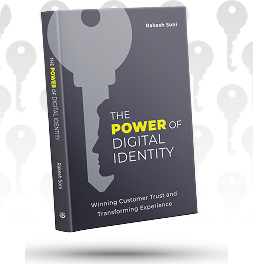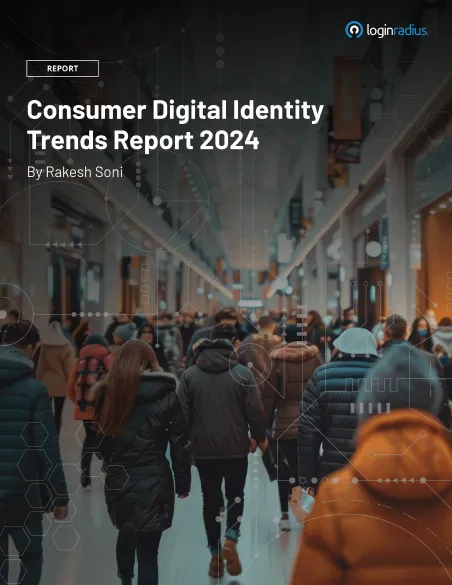Unveiling the Benefits of Identity Verification for Online Retailers
In the dynamic realm of online retail, establishing trust while countering cyber threats is paramount. Identity verification emerges as a game-changer, bolstering security, trust, compliance, and even personalization. Dive into the advantages it brings to businesses navigating the digital landscape.


Learn How to Master Digital Trust

The State of Consumer Digital ID 2024

Top CIAM Platform 2024
Introduction
Establishing trust is a cornerstone of success in this ever-expanding online retail world. However, the increasing threat vector and sophistication of attacks have created certain challenges for online retailers while they put their best foot forward in establishing customer loyalty and trust.
Hence, with the rise of cyber threats, fraud, and privacy concerns, businesses are compelled to adopt robust measures to ensure the security and authenticity of every transaction.
One such measure that has emerged as a game-changer is identity verification, which has revolutionized the entire retail industry to deliver flawless and secure customer experiences.
Let’s dive into the benefits of identity verification for online retailers.
1. Enhanced Security and Fraud Prevention
The digital landscape has potential risks, including identity theft and payment fraud. Identity verification acts as a formidable shield against these threats by confirming the identity of users making transactions.
Multi-factor authentication, biometric recognition, and document verification ensure that customers are who they claim to be, reducing the chances of fraudulent activities and unauthorized access.
2. Trust and Credibility
Trust is the cornerstone of online retail success. Implementing identity verification mechanisms instills confidence in customers that their personal information and financial details are safeguarded.
When consumers trust a business to prioritize their security, they are more likely to complete transactions and establish long-term relationships, thus boosting customer loyalty.
3. Compliance with Regulations
In an increasingly regulated digital landscape, businesses must adhere to strict compliance standards to protect customer data and maintain operational legality.
Identity verification aids in complying with various data security and privacy regulations, ensuring that businesses operate within legal boundaries and avoid penalties. These regulations include the EU’s GDPR and California’s CCPA.
4. Reducing Chargebacks and False Positives
Chargebacks, where customers dispute legitimate transactions, and false positives, where legitimate customers are incorrectly flagged as fraudulent, can be costly and damaging to businesses.
Identity management systems minimize these occurrences by accurately identifying genuine customers, resulting in smoother transactions and fewer disputes.
5. Personalized Customer Experiences
Identity verification isn't solely about security – it can also contribute to creating personalized customer experiences.
By confirming user identities, businesses can access valuable insights that help tailor recommendations and marketing efforts, enhancing the shopping journey.
6. Streamlined Operations
Manual review processes can be time-consuming and resource-intensive. Identity verification automates the verification process, allowing businesses to streamline operations, allocate resources more efficiently, and focus on core tasks.
7. Expansion of Global Reach
For businesses eyeing international markets, identity verification is crucial. Different regions have varying authentication requirements, and integrating identity verification systems helps companies cater to each market's unique needs while expanding their global footprint.
8. Adaptation to Changing Consumer Behavior
Consumer behavior is evolving, and shoppers are becoming more cautious about online security. Implementing identity verification aligns with these changing behaviors and demonstrates a commitment to customer well-being.
Conclusion
In the hyperconnected world of online retail, where trust and security are paramount, identity verification emerges as a linchpin for success. The benefits of identity verification for online retailers – from heightened security and compliance to personalized experiences – make it an indispensable tool for businesses striving to thrive in the digital marketplace.
As technology advances and consumer expectations evolve, identity verification will remain a cornerstone of online retail's future.
FAQs
1. How do you digitally verify your identity?
Utilize methods such as biometric recognition and document verification for digital identity verification.
2. How do I verify my customer identity online?
Employ identity verification tools like multi-factor authentication to confirm customer identities digitally.
3. What industry is identity verification?
Identity verification is a critical component of the online retail and financial industries.
4. What are the use cases for digital identity verification?
Use cases encompass enhanced security, fraud prevention, regulatory compliance, personalized customer experiences, and operational efficiency.


